Your login information returned multiple users. Please select the user you would like to log in as and re-type in your password.
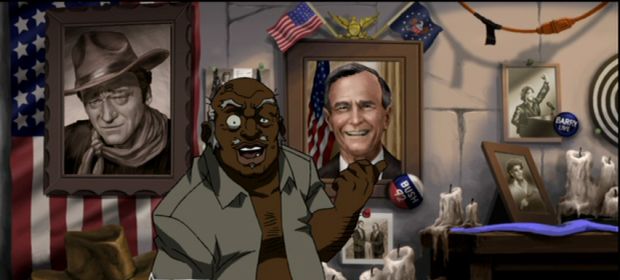
(This post was selected from our Community Blogs to appear on the front page. You can start a blog of your own here.)
WARNING: SLIGHT BIOSHOCK INFINITE SPOILERS. YOU HAVE BEEN WARNED.
There's a reason the opening hours of Bioshock Infinite illicits the reactions it does. It's not just because it shows the city of Columbia as a giant flying city full of racists, it's due to the fact that the game shows that racism in a form we all immediately recognize. For the most part, on the rare occasion that a video game tries to tackle the subject of racism and bigotry, they do one of three things. Sometimes they just go in soft, never daring to really tackle the subject so much as gently nudge it for fear of offending people. A more common approach is turning to the wonderful world of allegory and symbolism to show real-life acts of racism against fictional people who aren't actually being discriminated against in reality, like elves or mutants or people with dark hair. Most of the time however, they end up doing both.
We rarely see something so blatant as a town raffle used as an excuse to publicly martyr a white man and black woman for being romantically involved with each other. The host of the lapidation even asks you if you "take your coffee black these days" when your character hesitates to take a swing at the interracial couple. Seeing this disturbing yet almost refreshingly direct portrayal of racism as it relates to American culture, and the responses from people playing the game, says a lot about the simple act of being straight with your message.
I'm not saying those other games were badly written (because for the most part they weren't), nor am I here to say Bioshock Infinite's narrative on the subject is ground-breaking (because it isn't). This article isn't strictly about Bioshock Infinite's writing, as I'm sure there are plenty of people dissecting that game already. However, the direct method with which Infinite displayed the racism in the game feels more effective to me than showing me a make-believe alien bug race hoping that my mind associates them with South African apartheid.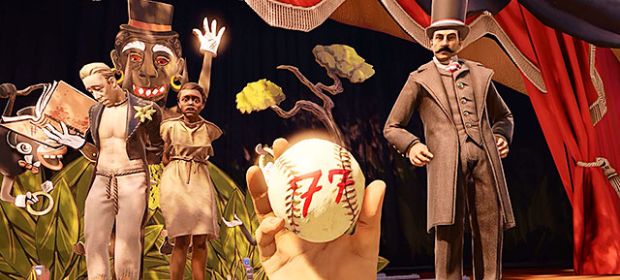
What's the difference between this scene as is, and this scene if the people on stage were elves and orcs? As is, this scene could actually happen…
So is using symbolism or allegory as a storytelling device ineffective? In the general sense, no. However, what I've noticed is that whenever a video game (or any storytelling medium, for real) uses allegory specifically to portray forms of discrimination, many things about it just do not sit well with me. Not all of these issues can be dismissed as a result of poor writers, either.
Sometimes, symbolism can be interpreted as a shield to avoid controversy. If your video game dares to involve issues like these, you fear getting heat from all sides of the political spectrum, no matter how you actually depict any of the characters. It's just the cultural environment we live in today, and video games have always been accused of promoting unsavory thoughts and actions. The more honest a game is with its message, the easier it is for people to take offense to it.
On the other hand, Skyrim features segregation in one of its major cities and nobody bats an eyelid, because if you just replace black people with Elves, white people with Nords, and Birmingham, Alabama with Windhelm then it's all peachy! Despite the fact that Skyrim is a very popular video game and thus a bigger target for the anti-gaming media, it's much harder for the mainstream public to be sensitive about the portrayal of fictional peoples. However, I feel that sometimes we need that controversy and bold directness to allow video games the space to grow in more meaningful ways than pixel count. Better writers would be nice too, since Skyrim's narrative sucked.
Now, I'm not suggesting that writers intentionally hide behind allegory to escape controversy, at least not usually. It's also completely reasonable to inject subjects like this into a fictional or fantasy setting, but only when used to enhance the universe it is in, not to create a parallel between the game's world and reality, which is unfortunately just what allegory is. When I saw the cultural and societal problems of the krogan people as a result of the genophage in Mass Effect 2, I was feeling for them because there was absolutely no real world comparison being made there. No ethnic group in real life has ever been the victim of a sterility plague to my knowledge, this race-wide problem affects krogan exclusively, and the ramifications of the genophage are something that the audience can only associate with krogan.
The krogan weren't just some allegory for homosexuality or whatever dumb metaphor a bad writer would try to put in the game, they were a real people facing their own problems. In this case, the only thing allegory can do is trivialize the struggles of a fictional people, as once you identify the symbolism, that's all krogan become: a symbol. Once you associate their struggle with a real-life demographic, you dissociate those issues from the krogan themselves. The genophage is no longer happening to the krogan, the krogan themselves no longer feel like a real people, and a part of that entire universe is rendered meaningless. In that regard, depicting an entire group of people as just one big metaphor is basically another form of stereotyping, which kind of makes the entire point of the allegory itself both futile and ironic.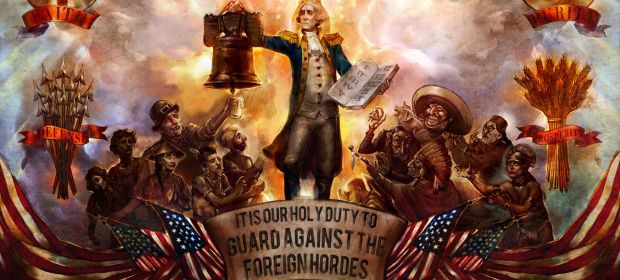
Some people in modern America would love THIS Washington!
Perhaps the worst aspect of using symbolism and allegory, at least to me, is that it can be ignored. From what I've noticed, most of the people who acknowledge that X-Men are in some ways an allegory for homosexuality are people who already support gay rights. Try telling an X-Men fan who is also a homophobe this, and all you're likely to get back is a response along the lines of “that's bullshit, they're mutants not faggots.” If allegory is used to address social issues in our culture, nothing is stopping those who hold opposite views from simply dismissing the symbolism and accepting the narrative at face value alone, shutting their minds away from the deeper meaning behind it. At that point, all you're doing is preaching to the choir as the only people who will listen are those who already agree with you.
For contrast, in Bioshock Infinite there is a voxophone recording of Comstock, one of the main antagonists, outlining his beliefs regarding slavery of Africans and Abraham Lincoln. His words are thus:
“What exactly was the ”Great Emancipator" emancipating the Negro from? From his daily bread, from the nobility of honest work, from wealthy patrons who sponsored them from cradle to grave, from clothing and shelter!
What made this recording stick out in my mind so much is the fact that I've heard almost these exact words very recently in real life, specifically at an incident at CPAC 2013 that I had been paying attention to a while before Infinite's release, involving an attendant at one of the panels who defends slavery under the same logic as Comstock. The fact that Bioshock Infinite's intended portrayal of American racism was in the early 1900's, and yet the content within is identical to things being said right now, does not evade my notice.
There's no ignoring that comparison, there's no pretending they're not talking about real-life racism and America's long history with it. There's no allegory to hide behind, for the writers or the audience. Sometimes being direct works, you don't need to spoonfeed hidden messages into a gamer's mind by dressing it up in a fantasy setting. We're not infants, we know that spoon is not an airplane or choo-choo train, it is in fact a spoon. I think we as a culture can handle a video game with real-life racism just as well as we can handle a young quarian girl being racially profiled or the segregation of elves in Windhelm.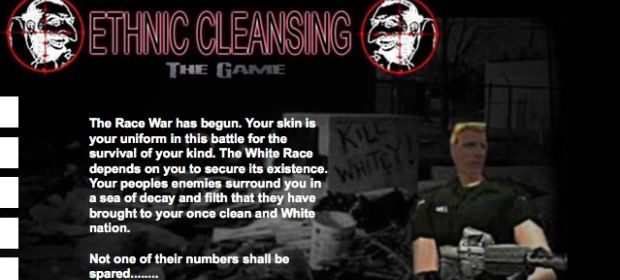
THIS IS NOT THE “DIRECT PORTRAYAL OF RACISM” I HAD IN MIND!
At this point, I personally believe allegory as it is used nowadays only serves to sugarcoat the intended message. What's even worse is the only people we're sugarcoating it for are the narrow-minded bigots who don't want to be told their way of thinking is messed up, least of all in a video game. Bioshock Infinite has already alienated some people with its overtly negative depictions of a white supremacist utopia, especially white supremacist gamers who feel uncomfortable spending a good portion of their time in Columbia killing people they agree with.
In my opinion… their discomfort is a good thing. I don't know about you, but I WANT those people to feel uncomfortable. There are racist people out there who won't play Bioshock Infinite because the bad guys in the game are racists, and I am totally okay with that. In my mind, the point of depicting bigotry in a video game is not to make racists feel bad in the hopes that they turn over a new leaf. While it would be nice, I don't think it's practical to believe a video game can make a racist see the error of his ways. Instead, their purpose should be to make bigots feel unwelcome in the hopes that they either turn over a new leaf or get the hell out. David Jaffe during the development of Twisted Metal for the PS3 once said to racists who would buy his game, “I do not want your fucking money,” and I could not agree more with his sentiments.
To sum up my thoughts, I just believe that if you're trying to tell a story, be it in a video game or movie or anything, and you want to say something you feel is important, sometimes you should just say it. Peace.
P.S. Basically, what I'm saying is can I just get Django Unchained: The Video Game? PLEASE?!
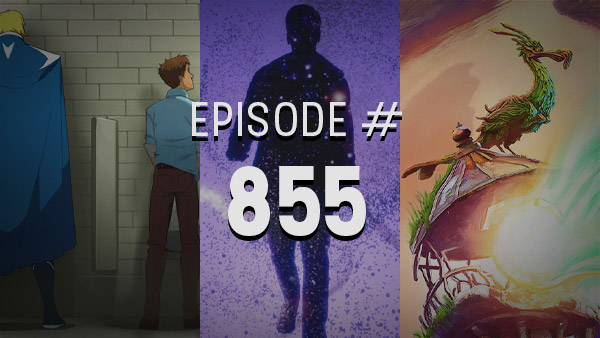
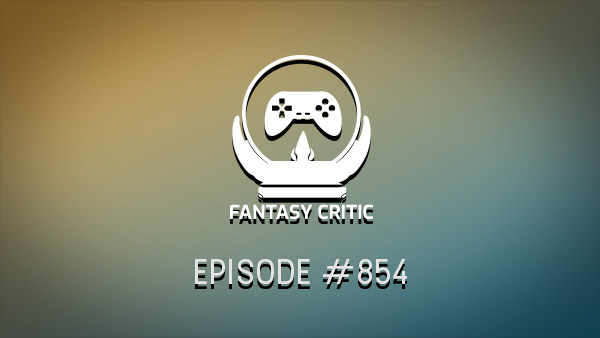
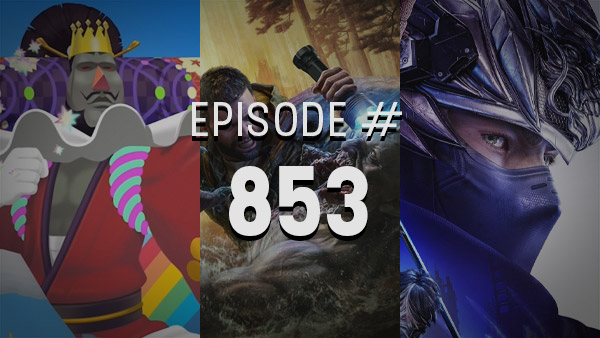
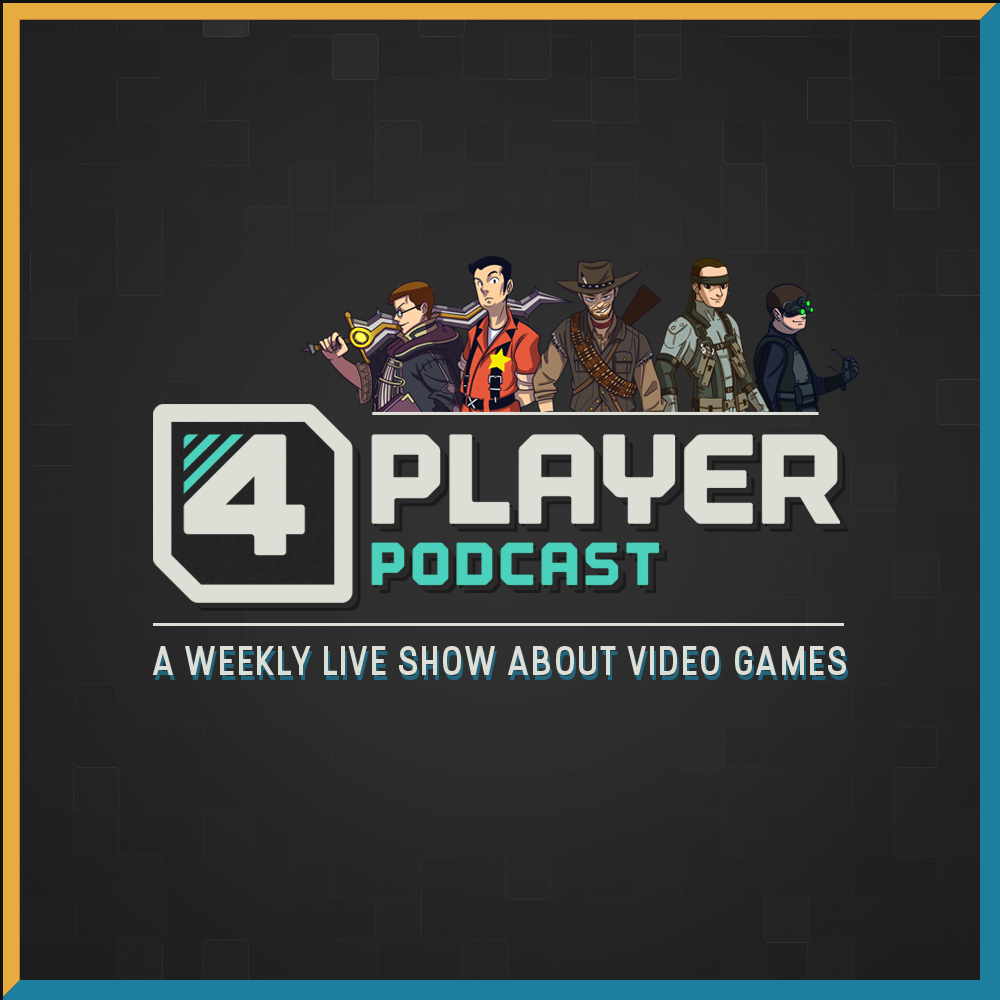
Comments
12 years, 7 months ago
Congrats for reaching front page ShadowSyko, although I can’t read it due to the fact I haven’t even played Bioshock infinite yet, so I’ll get around to it eventually.
12 years, 7 months ago
Very nice and enlightening read. It would be interesting to see an article on stereotypical characters presented in games, and why developers would think it is okay to have them in a game.
12 years, 7 months ago
The thing with race in games is that when do you hit the point when it becomes borderline a white power game or a black power game etc? Because you say you want django unchained the game but people will see that as a 'black power' game as you will just go around as a black man killing only white people who are portrayed poorly. The whole premise of the game will be about race and how bad white people are.
12 years, 7 months ago
Django game?! Make it happen. Also, Racism in games seems to be pretty common now a days. We're always trying to eliminate something, whether a being or creature, because they affect our way of life or thinking....idk what I'm trying to say atm.
Good read Shadow.